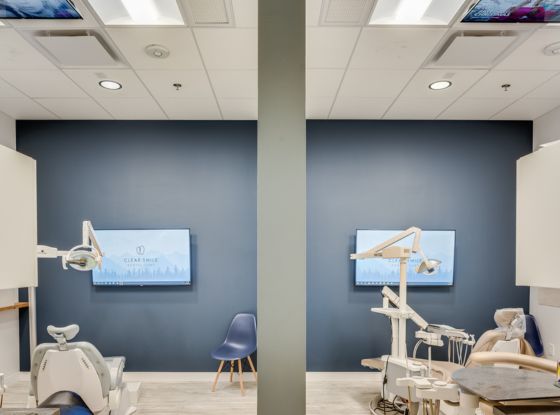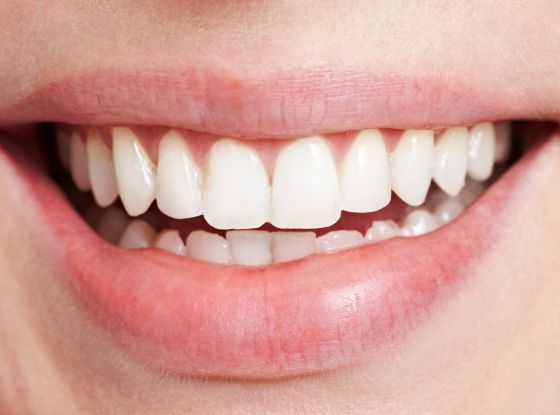How to Prevent and Reverse Gum Disease

How to Prevent and Reverse Gum Disease in Highlands Ranch, CO
Gum disease, also known as periodontal disease, is a common condition that can have a significant impact on your oral health. It starts as gingivitis, the mildest form of gum disease, but can progress into more severe forms, such as periodontitis, if left untreated. The good news is that with proper care, gum disease can be prevented and even reversed, especially in the early stages. At Clear Smile Dental Care, we understand the importance of healthy gums and want to help you maintain optimal oral health. We’ll explore effective strategies for preventing and reversing gum disease and why regular visits to the best dentist in Highlands Ranch, CO, are essential for keeping your gums healthy.
Understanding Gum Disease
Gum disease begins with the accumulation of plaque—a sticky film of bacteria that forms on your teeth. If plaque isn’t removed through regular brushing and flossing, it hardens into tartar, which can irritate and inflame the gums. The initial stage, gingivitis, is characterized by red, swollen, and bleeding gums. At this point, gum disease is reversible with improved oral hygiene and professional dental cleanings. If gingivitis isn’t treated, it can progress to periodontitis, which involves deeper tissue and bone damage, leading to tooth loss if left untreated.
How to Prevent Gum Disease
The best way to protect your gums and prevent gum disease is through consistent and effective oral hygiene practices. Here are some steps you can take to reduce your risk of gum disease:
1. Brush Your Teeth Twice a Day
Brushing your teeth is the most basic and essential step in preventing gum disease. Use a soft-bristled toothbrush and fluoride toothpaste to brush your teeth for at least two minutes in the morning and before bed. Be sure to gently brush along the gumline, where plaque tends to build up. A good brushing routine removes plaque, reducing the chances of gum inflammation.
2. Floss Daily
Flossing removes plaque and food particles from between your teeth and along the gumline, areas that your toothbrush can’t reach. By flossing at least once a day, you can prevent plaque from hardening into tartar and causing gum irritation.
3. Use Mouthwash
Antiseptic mouthwash can help kill bacteria that contribute to plaque buildup. Incorporating mouthwash into your oral hygiene routine can provide an extra layer of protection against gum disease. Be sure to choose a mouthwash that fights gum disease specifically.
4. Visit the Dentist Regularly
Regular dental visits are crucial for preventing gum disease. Your dentist will perform professional cleanings, removing plaque and tartar that you can’t eliminate with brushing and flossing alone. During your checkups, your dentist will also check for early signs of gum disease and recommend appropriate treatment if necessary. Scheduling an appointment with the best dentist in Highlands Ranch, CO, ensures you receive the highest quality care and attention.
5. Maintain a Healthy Diet
A balanced diet rich in vitamins and minerals, particularly vitamin C, is essential for maintaining strong, healthy gums. Avoid excessive sugary foods and drinks, as they encourage the growth of harmful bacteria that contribute to gum disease. Drinking plenty of water also helps wash away food particles and bacteria.
6. Quit Smoking
Smoking is a significant risk factor for gum disease. It weakens your immune system, making it harder for your body to fight off gum infections. Quitting smoking can greatly improve your oral health and reduce your risk of developing gum disease.
How to Reverse Gum Disease in the Early Stages
If you’re dealing with early-stage gum disease (gingivitis), the good news is that it can often be reversed with improved oral care. Here’s what you can do:
1. Improve Your Oral Hygiene Routine
Brush your teeth more effectively and floss regularly. By removing plaque and tartar buildup, you can reduce gum inflammation and allow your gums to heal. Use a soft-bristled toothbrush to avoid irritating your gums further.
2. Seek Professional Dental Care
If you suspect you have gum disease, schedule an appointment with the best dentist in Highlands Ranch, CO. A professional cleaning at Clear Smile Dental Care can remove tartar and plaque, which may be difficult to remove with at-home care. Your dentist may also offer treatments like scaling and root planing, which help clean beneath the gumline and promote gum healing.
3. Follow a Healthy Diet and Lifestyle
Eating a balanced diet and maintaining a healthy lifestyle supports your immune system and helps fight gum disease. Foods rich in antioxidants, such as fruits and vegetables, can promote gum health and reduce inflammation. Avoid alcohol and smoking, as they can exacerbate gum issues.
How to Treat Advanced Gum Disease
If gum disease progresses to periodontitis, professional dental treatment is necessary to prevent tooth loss and further complications. Your dentist may recommend scaling and root planing, deep cleaning procedures, or surgery in extreme cases. It’s essential to seek treatment promptly to prevent irreversible damage to your gums and teeth.
Contact Us
Preventing and reversing gum disease requires commitment to excellent oral hygiene and regular dental care. By brushing and flossing regularly, visiting your dentist for professional cleanings, maintaining a healthy diet, and avoiding harmful habits like smoking, you can protect your gums and preserve your overall oral health. If you notice any signs of gum disease, such as bleeding gums, persistent bad breath, or gum recession, don’t hesitate to schedule a visit with the best dentist in Highlands Ranch, CO, at Clear Smile Dental Care. Together, we can ensure your smile stays healthy for years to come.



